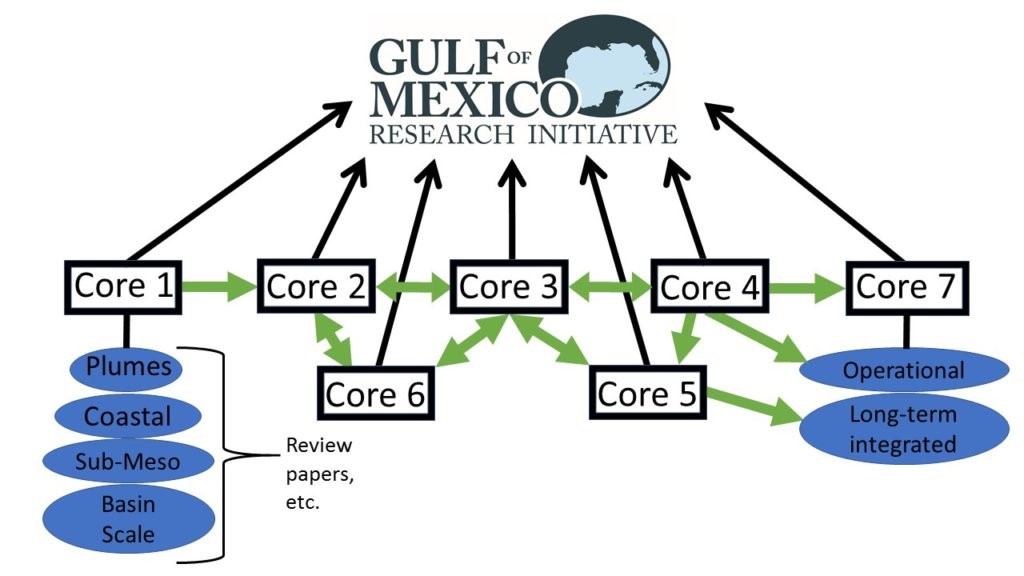Winter 2019 – GoMRI Synthesis & Legacy
– APRIL 5, 2019
(From Winter 2019 Newsletter) Contributing Author: Callan Yanoff
As we approach 2020 and the conclusion of GoMRI’s investment in research, the final Synthesis and Legacy workshops are being planned and executed. The contributions of the Synthesis Core Areas – big and small – help cement GoMRI’s legacy.
The below diagram illustrates the interrelated nature of the GoMRI Synthesis Core Areas. The green arrows indicate critical lines of communication. Each Core Area has multiple subtopics, as shown here in the Core Area 1 example. The Core Area 8 advisory group will play a unique and crucial role throughout all the Core Areas promoting the effective application and communication of GoMRI-funded science between the research and user communities. Products from the subtopics, designed for a scientific audience within that specific field, will help inform a product for each Core Area that is written for scientific audiences in all fields. Eventually, all Core Area products will inform Synthesis products for the general public.
To continue capturing GoMRI’s scientific discoveries and results through new products, cross-consortia workshops will go through 2019. In the coming summer months, Synthesis workshops will be held on the following topics:
- Defining the Gulf of Mexico Microbiome (Core Area 6) will be held in Washington, D.C. from April 9-10, 2019. In partnership with the American Academy of Microbiology and the American Geophysical Union, this joint colloquium will explore and synthesize research results from GoMRI and other relevant post-Deepwater Horizon funded microbiology and meta–omics efforts to advance the fields of environmental microbiology and ocean science. Discussion will also include how novel findings can be used to improve planning, preparedness, response, and recovery in future oil
- Fate of Oil and Weathering: Biological and Physical-chemical Degradation (Core Area 2) is being held from June 12-14, 2019 in Washington, C. This multi-day workshop will look to synthesize findings and identify a unifying message across many Core Area 2 subtopics, specifically: analytical chemistry; use of genomics and proteomics; use of molecular biology tools to ascertain and measure response of marine organisms other than microbes; physical fate and natural processes; standardization of WAFs and CEWAFs methods; photochemical reactions at sea and on shoreline; microbial degradation in all sectors of the ecosystem; and marine oil snow sedimentation and flocculent accumulation (MOSSFA).
For more information about how GoMRI’s Synthesis and Legacy effort is being put into motion, visit here.







